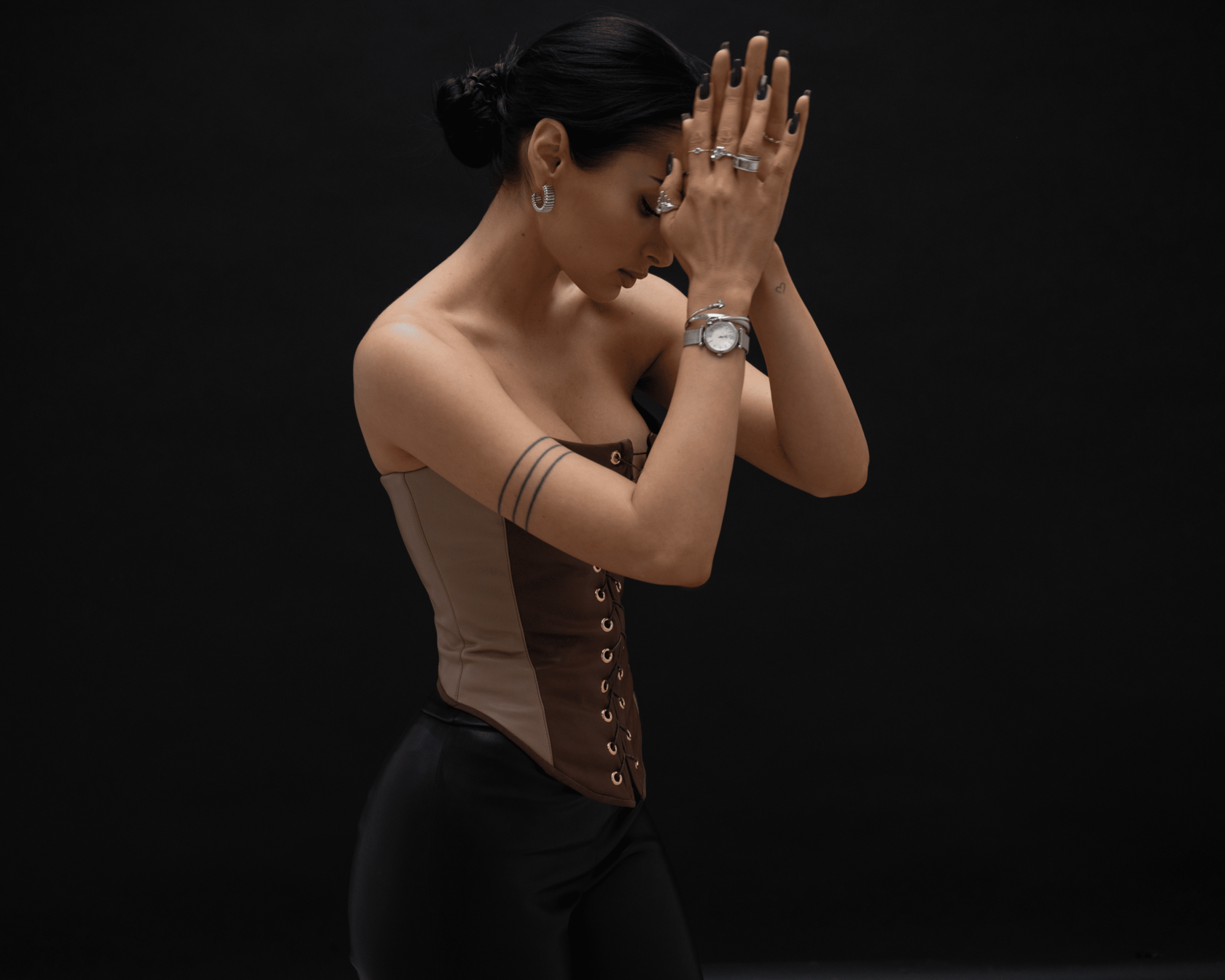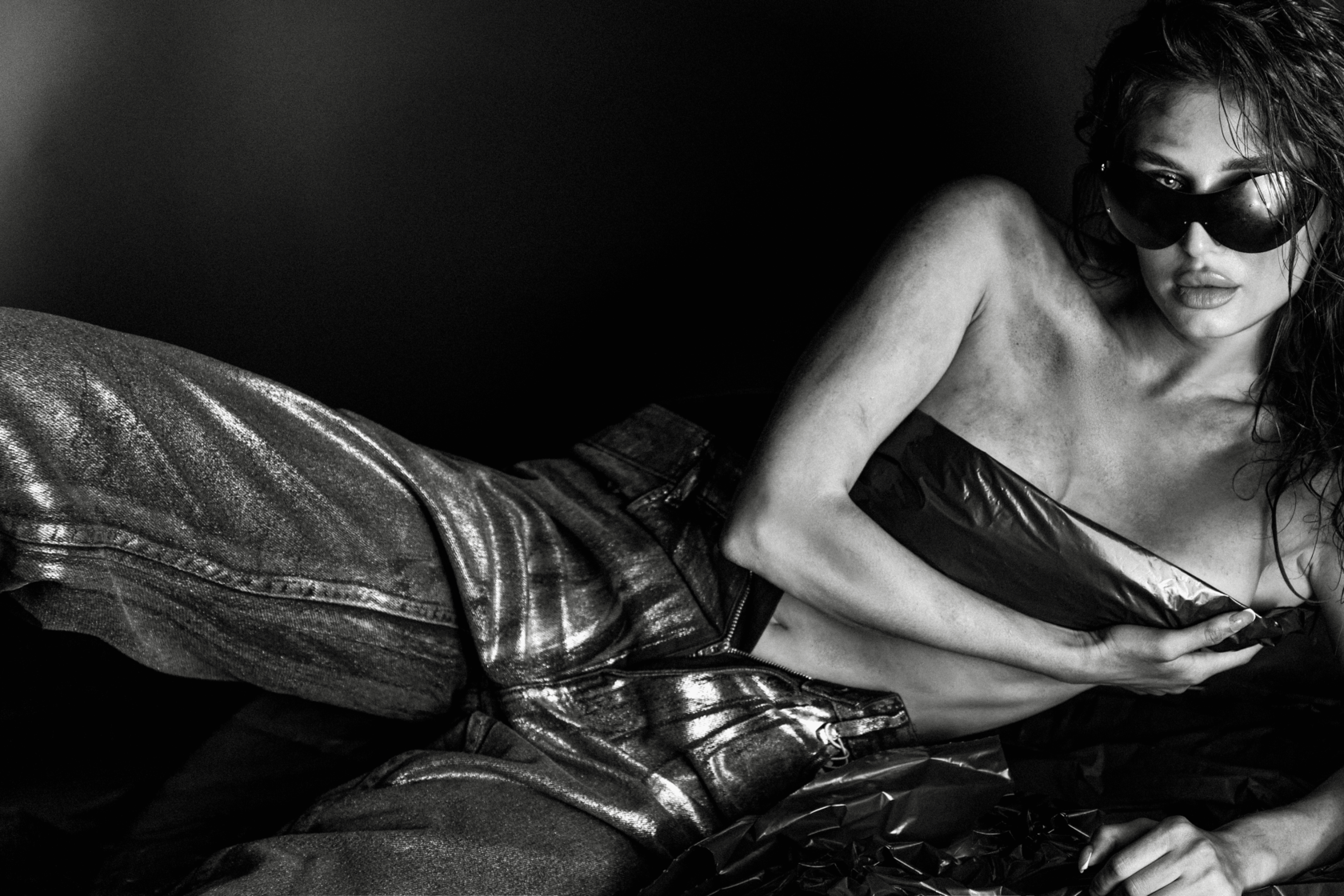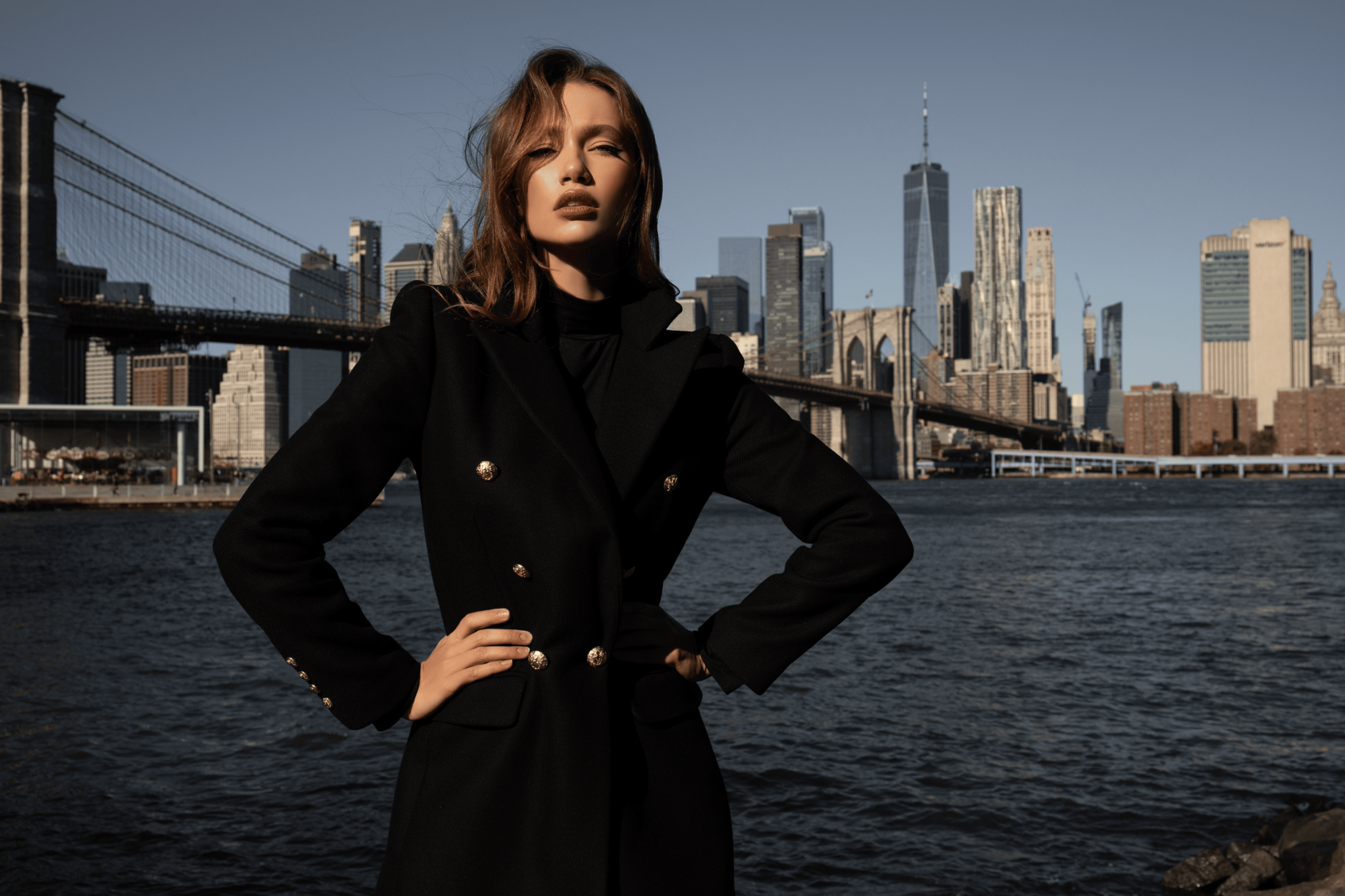Helga Tsyrekidze, a successful photographer from the Czech Republic, shares insights into her photography journey, emphasizing the importance of cultural adaptation in her international work. Helga discusses the psychological challenges she faced during her experiences in New York, a city that has significantly shaped her NYC photography journey. She also talks about her First Photo Academy school, a testament to her commitment to the craft.
The moment I pull the trigger is the moment the whole world stops for me. Helga Tsyrekidze

Tell us about your education. How did you come up with the idea of becoming a photographer, where did you study?
This happened by accident. As a child, I discovered film cameras at home and wondered what they were. The guy from the printing center helped me. I brought him a camera and asked him to explain what it was and how it worked. He told me everything. That is, I started with a film camera, and this is more challenging.
I had no access to the Internet; we had no computer at home since my family wasn’t rich. I learned everything myself from books or asked that guy from the printing center. At the age of 12 or 13, my brother and I got our first computer, where I looked at pictures and read articles.
I wanted to make money. I wanted to help my mother. She worked hard, and that was my motivation. I wanted her to be happy.
I came to school and thought about how to offer photography and my services to my classmates. At first, it was free. I was good at working with exposure. Then they started ordering photo shoots from me for a small price, just so that I would have enough to cover the costs of printing photographs.
Mum was very proud of me; she saw how much I liked it. She borrowed money to buy me a Canon digital camera. At that moment, I was the happiest person.
Regarding education, I studied at the Lugansk State Academy of Culture and Arts, Matusovsky – one of the best academies in Ukraine.
How did you start working as a photographer in Europe? What kind of photography did you start with, and how did your first publications appear in magazines?
Throughout my life, I've been ambitious, yearning for a European lifestyle that seemed straight out of a glossy magazine. I knew such a life was beyond reach in Lugansk. Initially, I ventured to Poland, and subsequently, I settled in the Czech Republic, pursuing my European dream.
I took to Instagram, actively reaching out with my portfolio, and began offering photo shoots. Now, I'm fortunate that my reputation precedes me, and I'm well-known for the quality of my work, which means I no longer have to seek out clients—they come to me.
Addressing the topic of magazine publications, it's a bit complicated. I don't hold onto my publications—I don't have the inclination to save them. My home is free of clutter, so I don't keep the magazines that feature my work. I'm focused on living in the moment, and past publications, despite being in numerous famous magazines, don't hold much significance for me.
You founded the First Photo Academy school. Tell us more about it. Who can study in it? What programs are there?
Indeed, I established an online school and also provide individual education. My aspiration is for my school to evolve beyond the digital realm into a brick-and-mortar institution. I'm navigating the path towards accreditation and the necessary bureaucracy, hopeful to realize my vision.
My students hail from worldwide locations and span a diverse range of ages, including young learners who are 16-17 years old.
I offer photography courses tailored for beginners, starting from the very basics and progressing to the point of selling a photograph. Additionally, there's a course designed for professional photographers seeking portfolio improvement or ways to advance their craft and sales techniques.
My commitment to student communication and mentorship extends well beyond the classroom. They share their work with me, and I offer guidance, much like a parent to their children. I don't watch the clock. I'm willing to stay late, explain concepts multiple times, and reschedule if necessary. However, punctuality is crucial to me, and I expect my students to respect my time as a photographer.
Do you think a photographer’s education is important? For example, there are famous universities like Yale University School of Art or Parsons School of Design that offer photography programs. Do people need to study at bachelor’s and master’s degrees or are the courses enough?
While education is crucial, self-education is paramount. Engaging in self-education and consistently practicing knowledge can significantly enhance the value of any formal course you take, regardless of the profession.
Institutions like Yale University School of Art and Parsons School of Design stand out by offering internships that provide practice at an elevated level, unlike some universities that may not have the resources to offer such opportunities with renowned companies.
Although my academy couldn't offer the high level of practice found at prestigious schools like Parsons School of Design, it provided a solid education in theory, enabling us to produce work on par with their students. The essence of education, I believe, lies in the practice and application of theory, which can lead to improvement even if your university isn't as well-known.
What is the most difficult thing about working as a photographer in Europe, in your opinion?
Mastering language skills is essential for effective communication within the country you work in. Without knowledge of the local language, you're restricted to a smaller network, which can limit your professional opportunities.
To succeed in this field in Europe, receive many orders, collaborate with magazines and brands, what qualities should photographers have, what should they do?
Cultural adaptation is key when moving to a new country. It's vital to learn the language, engage with the local community, and understand their needs and thought processes to truly integrate and think like a local.
To showcase your strong portfolio, effective communication and networking are crucial. Creating a moodboard, collaborating on projects, and sharing your ideas through proposals can help spread the word about your work. Engaging with stylists and other professionals via email and attending parties to talk about yourself can increase your visibility.
Your personal branding and professionalism are as important as the quality work you produce. Presenting yourself uniquely and valuing your time are essential in a competitive market like Prague, where simply offering low-cost photography services is not a sustainable strategy for career growth.
In the realm of brand collaboration and magazine submissions, the process is akin to crafting an idea, assembling a moodboard, and penning a proposal. There's a rhythm to submitting work to a magazine: sometimes you miss the deadlines, send your work late, and find the magazine's interest has waned. To succeed, you must align with the magazine's schedule when the concept of the release is just taking shape.
While I can't divulge the entire process of brand collaboration in this interview, I do offer lectures where I delve into the details of initiating work with brands and magazines for those eager to learn.
“I’m a student and just a beginner photographer” – where to start collecting a portfolio? If there are no orders for professional shooting yet.
Securing orders for professional shooting is contingent on having a robust portfolio. It's essential to engage in portfolio development with like-minded individuals – assembling a team or engaging in barter arrangements to organize shoots. However, it's crucial to acknowledge that project costs are typically the responsibility of the photographer, who invests in the project's success.
Naturally, your portfolio should be a reflection of your aspirations. If photographing people is your goal, featuring flowers in your portfolio won't suffice. I always emphasize that portfolio investment is key: if you invest in your portfolio, people will invest in you.
When you're ready to put yourself out there, ensure your pricing strategy accounts for the labor costs of all team members; overlooking anyone is not an option. Maintaining professionalism and respect is crucial for fostering long-term team collaboration.
What should a photographer be able to do besides taking photographs? Communicate with people, style, retouch?
Beyond the technical skills of a photographer, one must also embody the role of a psychologist. Clients often arrive at shoots feeling insecure and disconnected from themselves, seeking to rediscover their beauty. It's your duty to assist them and excel as a photographer and psychologist.
I approach every client as a friend, striving to unveil their personal charisma, craft a lasting memory, and uplift their spirits. Even when faced with a rude client, it's imperative to remain kind, offering support, encouragement, and a relaxed atmosphere to enhance client relationships.
I'm a proponent of effective delegation to enhance job performance, but it's also crucial to have hands-on skills. For instance, mastering retouching is essential when you can't delegate. I collaborated with a talented retoucher, but when she shifted careers, I struggled to find someone whose retouching quality met my standards. Eventually, I did, but until then, I took on the retouching work myself.

You went to New York and worked there as a photographer. Tell us what you did.
My journey to New York was sparked by a desire for a change of scenery and to explore the possibility of living in the bustling NYC. However, I discovered that Prague's charm was more aligned with my comfort. In New York, I set a high pricing standard for my work, one that even locals might hesitate to demand. Yet, clients were drawn to my work and became repeat customers, appreciating the value I provided. Being bold in stating your worth is crucial.
In addition to my primary work, I delved into content creation, specifically videography, which was outside my usual scope but nonetheless enjoyable.
In New York, if you want to work, you will always find a job.
How is working as a photographer in New York different from working as a photographer in Prague?
I believe that Prague offers a competitive environment comparable to New York, but the psychological challenges in NYC are more intense. The city's relentless pace, the high cost of living, and the constant hustle to earn and save can be overwhelming. Relaxation seems elusive, and many turn to antidepressants. Yet, New York's vibrant scene is a haven for creative minds, provided you're prepared to work tirelessly and manage the stress.
Upon my arrival in the states, I encountered a stark reminder of the cultural differences at customs: "Everything you knew about life in Europe, you must forget; this is America, and the rules are different here." This advice on adaptation has stayed with me, underscoring the unique American experience.
What advice would you give to aspiring photographers/students who plan to study photography and dream of working in America? What do they need to think about now, take some steps to find work in America in the future?
I would advise investing in photography education by taking courses from photographers whose work resonates with you. Don't shy away from specialization; instead, learn from those you admire without taking unnecessary detours. Skimping on your education and personal growth is never a wise choice. If you see a compelling course, seize the opportunity.
Pursue a career focus that genuinely interests you. If photographing women is your passion, concentrate on that rather than diverting to family portraits or other genres. Stick to the specialization you're passionate about and nurture it.
If you dream of working in America or in another country where relocation is necessary, begin by focusing on portfolio development where you currently reside. Build a robust portfolio, gain valuable experience, and save money. Only then should you embark on your job search, proactively reaching out and sending emails to potential employers.
There is a platform known as Indeed, a website and an application where you can commence your job search for photographer positions in America. Additionally, Facebook offers numerous opportunities for networking and finding work. However, these efforts are best conducted in person. Consider offering barter arrangements to gain visibility and advertisement. With determination and the right approach, success is within reach. Good luck!








